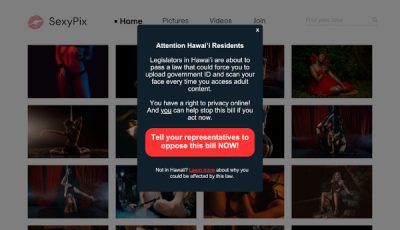Federal Court Pauses Enforcement of Utah’s Social Media Access Law
 SALT LAKE CITY, Utah – In a decision issued Tuesday, U.S. District Court Judge Robert Shelby granted a preliminary injunction sought by NetChoice, one of the plaintiffs challenging the “Utah Minor Protection in Social Media Act” (UMPSMA), holding that “NetChoice is substantially likely to succeed on its claim the Act violates the First Amendment.”
SALT LAKE CITY, Utah – In a decision issued Tuesday, U.S. District Court Judge Robert Shelby granted a preliminary injunction sought by NetChoice, one of the plaintiffs challenging the “Utah Minor Protection in Social Media Act” (UMPSMA), holding that “NetChoice is substantially likely to succeed on its claim the Act violates the First Amendment.”
Under the law, social media companies are required to verify the ages of prospective account holders, apply by default certain privacy settings to accounts held by minors and limit the ability of those accounts to interact with other users of the platform without parental consent. From a constitutional law perspective, the case presents some of the same questions at issue in legal challenges to state age-verification statutes aimed at adult platforms.
In issuing his ruling, Shelby said the court “recognizes the State’s earnest desire to protect young people from the novel challenges associated with social media use.”
“But owing to the First Amendment’s paramount place in our democratic system, even well-intentioned legislation that regulates speech based on content must satisfy a tremendously high level of constitutional scrutiny,” Shelby wrote. “And on the record before the court, Defendants have yet to show the Act does.”
More specifically, Shelby held that “NetChoice has shown it is substantially likely to succeed on its first cause of action—that the entire Act, through the Act’s Central Coverage Definition, facially violates the First Amendment. Second, NetChoice has demonstrated the remaining preliminary injunction factors support its request for relief.”
In evaluating the state’s position, Shelby noted that although “the Act’s statutory language asserts ‘the state has a compelling interest in safeguarding the well-being and privacy of minors in the state,’ Defendants have not met their burden to articulate a compelling government interest warranting the Act’s intrusion on social media companies’ First Amendment rights.”
“Viewing Defendants’ argument through a wide lens, the court understands Defendants’ position to be that the State has compelling interests in protecting minors from the mental health and personal privacy-related harms associated with excessive social media use,” Shelby wrote. “But these interests, like California’s interests in protecting minors from the harms associated with violent videogames and aiding parental authority, fall short of the First Amendment’s demanding standards.”
Shelby also asserted the state’s position “that the Act serves to protect uninformed minors from the ‘risks involved in providing personal information to social media companies and other users’ ignores the basic First Amendment principle that ‘minors are entitled to a significant measure of First Amendment Protection.’”
“The personal information a minor might choose to share on a social media service—the content they generate—is fundamentally their speech,” Shelby wrote. “And the Defendants may not justify an intrusion on the First Amendment rights of NetChoice’s members with, what amounts to, an intrusion on the constitutional rights of its members’ users.”
Chris Marchese, Director of the NetChoice Litigation Center, hailed the court’s decision and expressed hope that this and other legal setbacks dealt to similar legislation in other states might lead state legislators to reconsider passing such legislation.
“Utah’s law not only violates the First Amendment, but if enforced would backfire and endanger the very people it’s meant to help,” Marchese said. “We look forward to seeing this law, and others like it, permanently struck down and online speech and privacy fully protected across the country. The District Court’s thoughtful decision highlights just how flawed this law is at its core. With this now sixth injunction against these overreaching laws, we hope policymakers will focus on meaningful and constitutional solutions for the digital age.”
Utah Governor Spencer Cox said he was disappointed with the court’s decision and acknowledged the legal wrangling could present a long fight for the state, but added that it “is a battle worth waging” due to the harms to minors allegedly caused by social media use.
“Let’s be clear: social media companies could voluntarily, at this very moment, do everything that the law put in place to protect our children,” Cox claimed. “But they refuse to do so. Instead, they continue to prioritize their profits over our children’s wellbeing. This must stop, and Utah will continue to lead the fight.”
You can read Shelby’s full decision on the NetChoice website.
Welcome sign image via the Utah Department of Transportation













